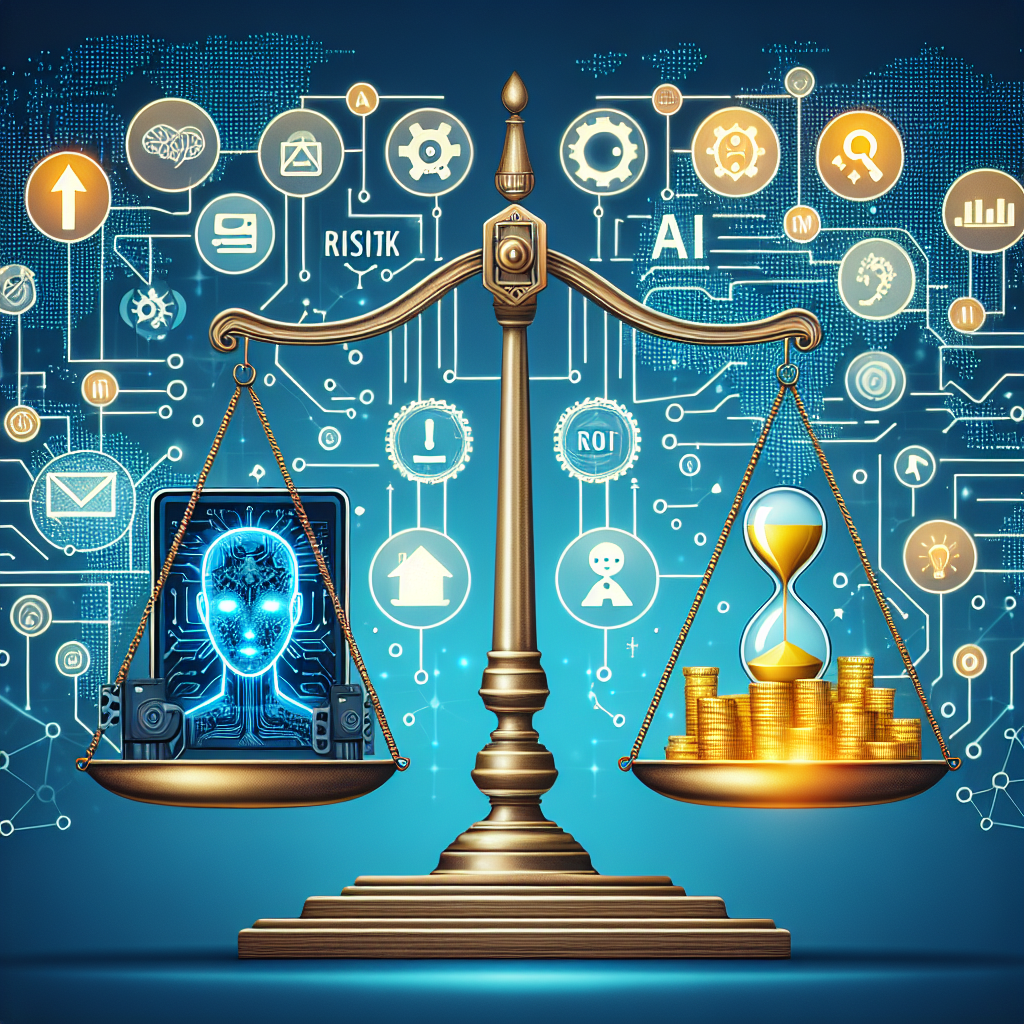Outsourcing has become a common practice in today’s business world, allowing companies to access specialized skills and expertise without the need to hire full-time employees. This trend has extended to the field of artificial intelligence (AI) development, with many companies choosing to outsource their AI projects to third-party vendors. While outsourcing AI development can offer a number of benefits, it also comes with its own set of risks and challenges. In this article, we will explore the risks and rewards of outsourcing AI development and provide some guidance on how to navigate this complex landscape.
The Rewards of Outsourcing AI Development
1. Access to Specialized Skills and Expertise: One of the primary reasons companies choose to outsource AI development is to gain access to specialized skills and expertise that may not be available in-house. AI is a complex and rapidly evolving field, and it can be difficult for companies to stay abreast of the latest developments and techniques. By outsourcing AI development to a third-party vendor, companies can tap into a wealth of knowledge and experience that can help them accelerate their AI projects and achieve better results.
2. Cost Savings: Outsourcing AI development can also offer cost savings for companies, particularly when it comes to hiring and training in-house employees. Building an in-house AI team can be expensive and time-consuming, as companies need to invest in recruiting, training, and retaining top talent. By outsourcing AI development, companies can avoid these costs and focus their resources on other areas of their business.
3. Faster Time to Market: Outsourcing AI development can also help companies accelerate their time to market for new products and services. Third-party vendors often have the infrastructure and resources in place to quickly scale up AI projects and deliver results in a timely manner. This can be particularly beneficial for companies looking to gain a competitive edge in their industry and capitalize on new opportunities.
The Risks of Outsourcing AI Development
1. Quality Control: One of the biggest risks of outsourcing AI development is the potential for quality control issues. When working with third-party vendors, companies may have less visibility and control over the development process, which can lead to discrepancies in the final product. It is important for companies to establish clear expectations and communication channels with their outsourcing partners to ensure that the quality of the AI project meets their standards.
2. Security Concerns: Another major risk of outsourcing AI development is the potential for security breaches and data leaks. AI projects often involve sensitive data and proprietary algorithms, which can be vulnerable to cyber attacks and unauthorized access. Companies must carefully vet their outsourcing partners and implement robust security measures to protect their intellectual property and ensure the confidentiality of their data.
3. Communication Challenges: Effective communication is essential for successful AI development, but outsourcing can introduce communication challenges due to factors such as time zone differences, language barriers, and cultural differences. Companies must establish clear lines of communication with their outsourcing partners and set up regular check-ins to ensure that everyone is on the same page and working towards the same goals.
FAQs
Q: How can companies mitigate the risks of outsourcing AI development?
A: Companies can mitigate the risks of outsourcing AI development by carefully vetting their outsourcing partners, establishing clear expectations and communication channels, implementing robust security measures, and monitoring the quality of the AI project throughout the development process.
Q: How can companies ensure the quality of outsourced AI projects?
A: Companies can ensure the quality of outsourced AI projects by setting clear goals and milestones, conducting regular reviews and feedback sessions, and working closely with their outsourcing partners to address any issues or concerns that may arise.
Q: What are some best practices for outsourcing AI development?
A: Some best practices for outsourcing AI development include selecting experienced and reputable outsourcing partners, defining clear project requirements and deliverables, establishing a strong communication plan, and conducting regular performance reviews to monitor progress and ensure quality.
In conclusion, the decision to outsource AI development can be a strategic move for companies looking to access specialized skills and expertise, reduce costs, and accelerate their time to market. However, it is important for companies to carefully weigh the risks and rewards of outsourcing AI development and take steps to mitigate potential challenges. By following best practices and establishing clear expectations with their outsourcing partners, companies can successfully navigate the complex landscape of AI development outsourcing and achieve their desired outcomes.

